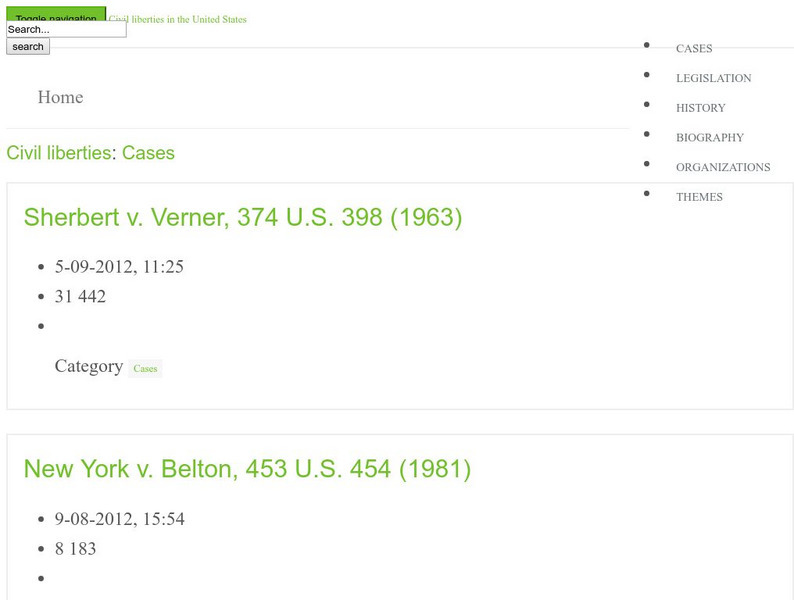iCivics
Mini Lesson: Judicial Activism and Restraint
Scholars analyze the United States judicial branch as it pertains to activism and restraint. They use research to define the roles the courts play while at the same time investigate current events to identify how the media covers those...
State Bar of Texas
Baker v. Carr
Can the federal government override the state government to protect the citizens of the United States? The 1962 Supreme Court case Baker v. Carr outlines the issue of equal protection under the law. Scholars investigate with a short...
Curated OER
The Judiciary in American History
Learners investigate the influence of political and societal forces on judicial decisions. Among the topics they examine are the selection of judges and the cause and effect relationship between politics, society, and the law. to...
iCivics
I Civics: Mini Lesson: Judicial Activism & Restraint
Lesson teaches the judicial philosophies of activism and restraint and also explores criteria through which students can evaluate news-related opinion pieces and practice judging the value of a Supreme Court-related opinion piece of choice.
Other
Fundamentals of Judicial Philosophy: Activism
This short article discusses judicial restraint versus judicial activism, with constitutional and case study references.
iCivics
I Civics: Judicial Review
This lesson plan explores the case that established the power the Supreme Court has today. Learners will learn how the decision in Marbury v. Madison influenced the structure of the third branch, and how the Court's use of judicial...
PBS
Wnet: Thirteen: Supreme Court: Capitalism and Conflict: Court History
During the Progressive Era many state laws were passed that dealt with regulation of working conditions. Read about the Supreme Court history in judging the constitutionality of these laws.
Other
Civil Liberties: Lyng v. Northwest Indian Cemetery Protective Association
How does the constitution resolve a conflict between the government's property rights and the right of groups to engage in religious practices on lands they consider sacred? The Supreme Court answered that question in favor of the...







